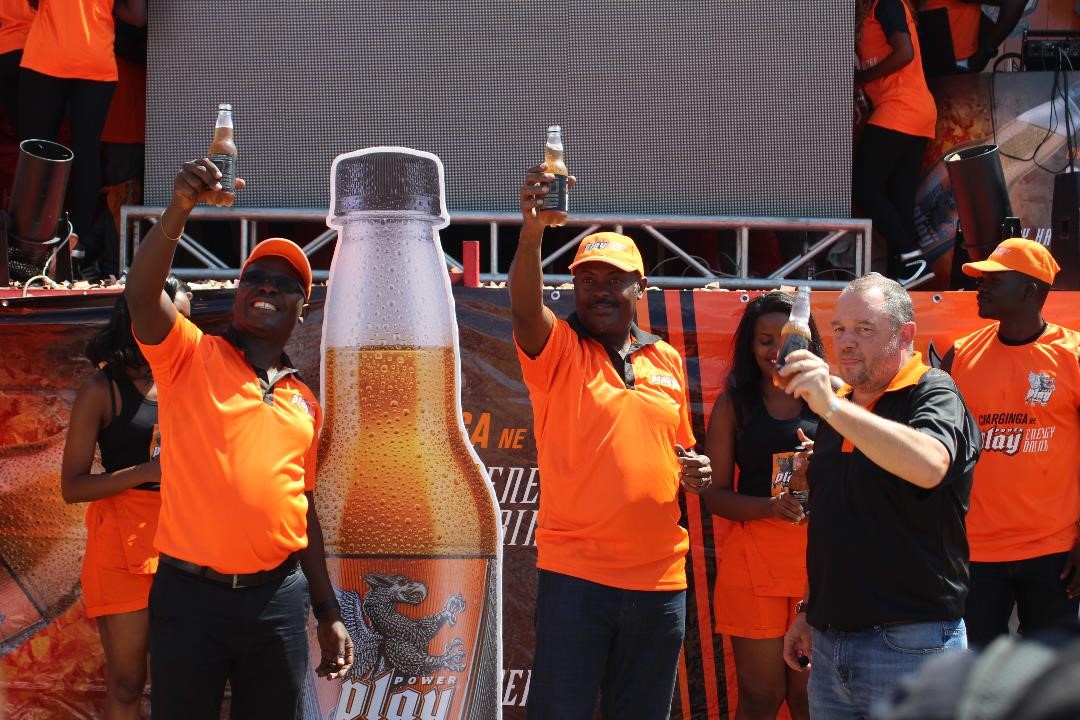Uganda is a saturated market – with imported and locally manufactured products, margins are squeezed.
Undeterred, the Ugandan subsidiary of global beverage giant Coca-Cola is making an exceptionally bold move by trying to force again its way into the country’s fiercely competitive energy drink market.
With earnings losing steam and its mainstay carbonated soft drinks products struggling under intensifying competition, Coca-Cola Beverages Africa Uganda that runs a $26.7 million Century Bottling Company bottle production line in Namanve is rushing to diversify its portfolio and profit structure.
The company on Friday held a high-profile launch event for Power Play Energy Drink under the tagline “Charginga Ne Power Play”, its second energy drink and is looking to rack up Shs 500 million of sales in the final 60 days of 2017 during its first foray into the segment.
At Shs2000 a bottle, Power Play is cheaper than rivals and global best-sellers like Red Bull and Lucozade, which typically go for upwards of Shs6000. Coca Cola’s decision to price their world-class Monster energy drink basically labeled it alongside the Red Bulls as luxury items that extravagant and rich people consume.
Market analysts have however lauded Coca Cola’s move to adopt a lower pricing strategy to appeal to its targeted consumers and increase its presence in the localized and low-end market segment that has to Power Play market leaders-Rock Boom, a product manufactured by rivals Harris International, the makers of Riham Cola. Pepsi Uganda this year also launched a brand called Sting (all retailing at Shs2000 like Power Play).
New products normally go through an adaptation process and need a lot of marketing supports inform of personal selling, sales promotion, and sampling among others, which is likely to be focused on by a proactive team led by new Public Affairs and Communications Director, Simon Kaheru.
But Coca Cola Uganda’s positioning of Power Play as a “Work hard, Play hard” drink towards the need for a quick and effective energy boost, will struggle to upstage Rock Boom that has been sold as a sex vitality drink. This explains why more men are seen taking it. The positioning seems to have worked out.
According to a March 2016 Soft Drinks Report by a market research company Euro Monitor International, Prolonged hot weather and manual labour along with growth in the popularity of sports as well as increasing number of gyms and health spas in Uganda were key factors for the growth in sales of energy drinks in 2015. Energy drinks are projected to see an off-trade value of 3% at constant prices over the forecast next few years. This is expected to be due to increasing demand for the products from consumers who are informed.

Musoke Ivan, a 27-year old truck driver in the produce transport sector says he will drink anything with the word “energy” on the can. Last year, he started taking an energy drink every mornings before he set off from different districts of Western Uganda. At first, Musoke was skeptical it would actually give him more energy. “I’m pumped or something. I’m awake. It’s a good feeling,” says Musoke as he struggles to explain how this energy drink makes him feel.
On Friday, Power Play’s activation was in their environs, Derrick Mutumba, a Boda Boda rider at Oilcom stage in Namanve just like Musoke had his say about the energy drinks. “Ate kano Coke kereese kakabi, energy drink mungi ate akawowo kakabi mwana, namaanyi otandikirawo! Kyakabi” translated as “This is a superb energy drink with a great taste! The energy is instant.”
Musoke and Mutumba are part of a growing market that companies in the energy drinks market are struggling to capture.
“We are proud to introduce a high quality and trustworthy global energy drink into Uganda. With the current trend of busier schedules and more complicated lifestyles, people need an energy boost on a daily basis and this product provides the perfect offering,” revealed CCBA Managing Director Conrad Van Niekerk.
It is understood that Power Play is going to sold in retail shops using Coca Cola’s distribution network. But in coming months if dislodging Rock Boom is not achieved, there could be plans to also deploy sales representatives on the streets of Kampala, at taxi stages and other busy locations in the mornings and evenings.
Asked about Coca Cola’s below the line marketing campaigns and plans to distribute their new product countrywide, the CCBA Commercial Director Patrick Oyuru said asserted that they had everything in position.
“Our marketing campaigns are well known to Ugandans. We are the best distribution company in the country, with a service reach in every part of Uganda,” Mr. Oyuru said. “We will have community and outlet based activations that will allow us quick penetrate the market. Sampling, posters, launch initiatives, consumer and customer education, will all form part of our strategy going into the market.”
He added: “The market from our perspective is not saturated at all. Uganda is a developing economy with one of the lowest per capita consumption of soft drinks in Africa, and energy drinks even more so. We are confident that there is enough space for us to position such a superior brand.”

In addition to entering the energy drink market, Coca Cola is seeking to win over consumers of fruit juices with a rebrand of its Minute Maid.
Although Uganda has a number of juice producers, including Minute Maid, Britannia Allied Industries Limited (Splash), Sameer Agriculture Livestock (Daima), and Riham, among others, it imports the bulk of the raw materials such as pulp or fruit concentrates from countries like Kenya.
The Coca-Cola Company ( KO ) is the global leader of the liquid refreshment beverage (LRB) market, especially in the carbonated soft drinks ( CSD ) category, which accounts for almost 40% volume share of the overall LRB market. The firm is said to have invested over Shs440 billion in Uganda since 1995.
For feedback and story tips, contact: stephenmuneza@gmail.com, +256772544870 (Whatsapp) 0705367895 or Twitter @stephenkmuneza










